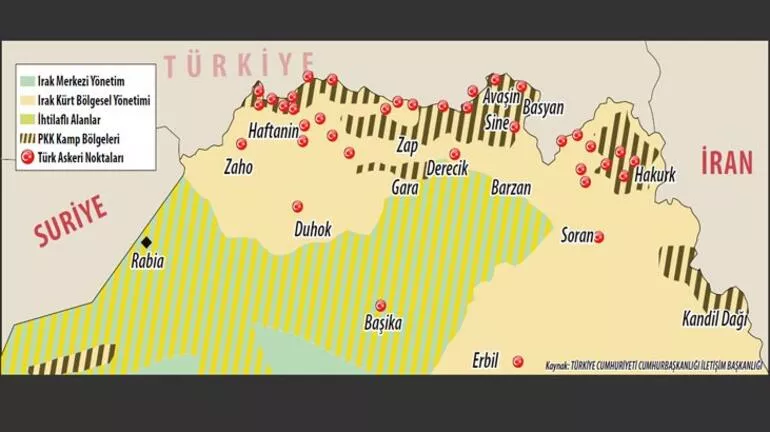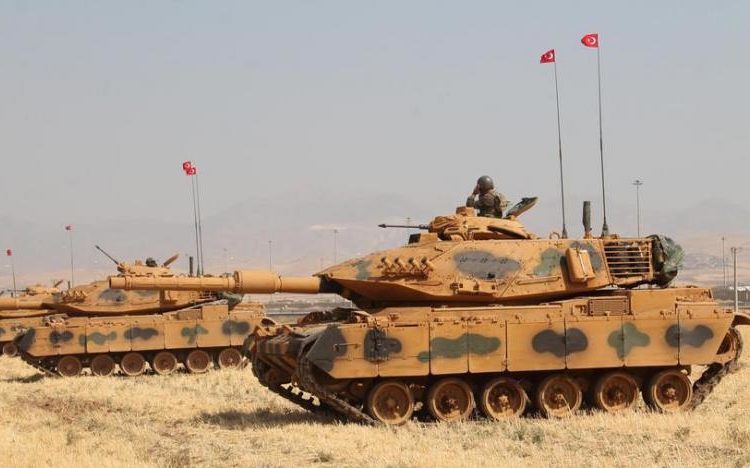Levent Kenez/Stockholm
Turkey’s military presence in Iraq again became news after nine civilians died in an alleged Turkish artillery attack on Wednesday that hit a tourist resort outside Zakho in northern Iraq. While the Iraqi central government and Iranian-backed political groups demand Turkey leave Iraqi territory completely, the Kurdistan Regional Government (KRG), which has close political and trade relations with Turkey, is pursuing a moderate policy. Ankara denied it was behind the attack, accusing the outlawed Kurdistan Workers’ Party (PKK) of carrying it out. The PKK denies any involvement.
Turkey’s alleged artillery attack is expected to be on the agenda at a UN Security Council meeting on Tuesday. The Iraqi Foreign Ministry announced that it had submitted a list of Turkey’s alleged violations of its territory and airspace to the council over the weekend. A Nordic Monitor study shows that Iraq has regularly reported Turkey’s alleged violations to the UN.
Most recently, in a letter submitted to the Security Council on June 21, 2022 by the permanent representative of Iraq to the UN, between January 1 and March 31, 2022, 704 alleged violations listed by month were reported.
In a letter previously submitted to the Security Council, on June 17, 2022, Iraq claimed that Turkey had committed 2,042 border violations between September 1, 2021 and January 1, 2022.
Turkey states that its military activities in Iraq are due to its fight against the PKK and that Turkey is exercising its right arising from international agreements because the Iraqi government has not cleared its territory of terrorist elements.
A letter submitted to the Security Council by Turkey’s UN mission on June 16, 2022 states that “Türkiye is exercising its inherent right of self-defense, as outlined in Article 51 of the Charter of the United Nations, and acting within the context of the responsibility attributed in relevant Security Council resolutions to States Members of the United Nations in the fight against terrorism,” emphasizing that Iraq had not fulfilled its responsibilities.
Iraqi Foreign Minister Fuad Hussein during a session of parliament on Sunday noted that there was an official document signed by the former Iraqi foreign minister, Tariq Aziz, and his Turkish counterpart in 1984 allowing Turkish forces to enter five kilometers into Iraqi territory for a period of only one year.
“More than 22,700 Turkish violations against Iraq’s sovereignty were recorded, and the Foreign Ministry submitted 296 memoranda of protest on the Turkish interference, and they were included in the complaint submitted to the UN Security Council against Turkey,” Hussein said
The Turkish Ministry of Defense, which has remained silent about the attack in which nine civilians were killed, has been carrying out a military operation called Claw-Lock since April 17 in northern Iraq. According to the ministry, the Turkish Armed Forces (TSK) have neutralized 290 PKK terrorists so far and destroyed 330 caves and shelters containing a large amount of weaponry and ammunition. Turkish authorities often use the term “neutralize” in statements to imply the terrorists in question either surrendered or were killed or captured.
The Turkish army had previously killed civilians in military operations in northern Iraq; however, the tension did not escalate since the civilian casualties were Kurds living within the territory of the KRG. Protests were held in front of Turkish representative offices across the country due to the fact that those who died on Wednesday were tourists from the central and southern parts of Iraq.
Senior Shiite cleric and influential political figure Muqtada al-Sadr condemned the bombardment and said, “Iraq can be restored to its sovereignty by reducing diplomatic relations with Turkey, closing air and ground crossings, filing a formal complaint to the UN, and terminating all security agreements with Ankara.” He suggested that the Iraqi government take action against re-infringement.

According to a map distributed by the Turkish Presidency in 2020, Turkey has bases and checkpoints in 37 locations, located mostly in northern Iraq. The TSK bases extend into the interior as well as along the border with Turkey. It is noteworthy that the TSK is deployed at many points around Zakho, where the picnic area in which the civilians were killed is located.












